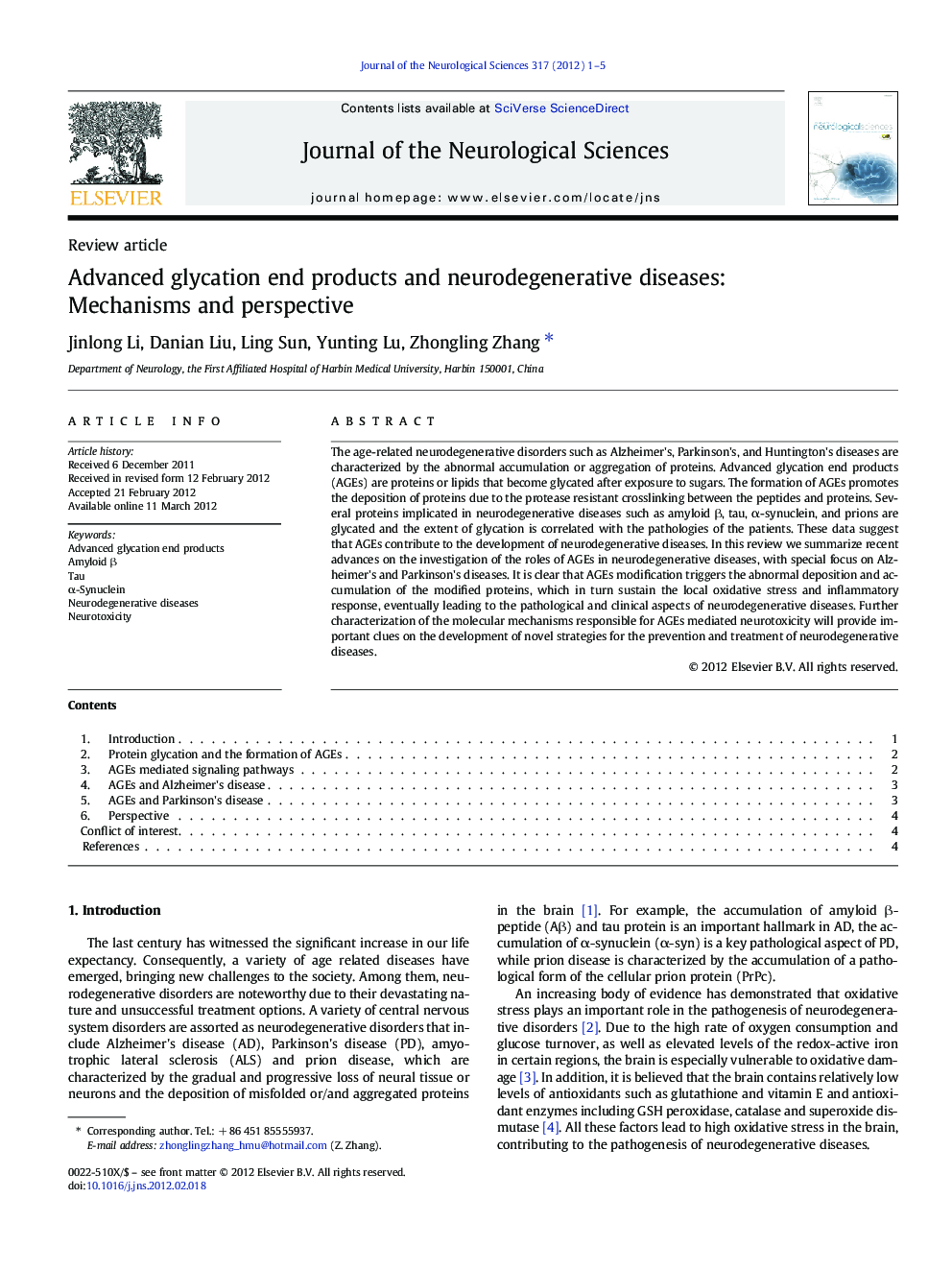| Article ID | Journal | Published Year | Pages | File Type |
|---|---|---|---|---|
| 8281040 | Journal of the Neurological Sciences | 2012 | 5 Pages |
Abstract
The age-related neurodegenerative disorders such as Alzheimer's, Parkinson's, and Huntington's diseases are characterized by the abnormal accumulation or aggregation of proteins. Advanced glycation end products (AGEs) are proteins or lipids that become glycated after exposure to sugars. The formation of AGEs promotes the deposition of proteins due to the protease resistant crosslinking between the peptides and proteins. Several proteins implicated in neurodegenerative diseases such as amyloid β, tau, α-synuclein, and prions are glycated and the extent of glycation is correlated with the pathologies of the patients. These data suggest that AGEs contribute to the development of neurodegenerative diseases. In this review we summarize recent advances on the investigation of the roles of AGEs in neurodegenerative diseases, with special focus on Alzheimer's and Parkinson's diseases. It is clear that AGEs modification triggers the abnormal deposition and accumulation of the modified proteins, which in turn sustain the local oxidative stress and inflammatory response, eventually leading to the pathological and clinical aspects of neurodegenerative diseases. Further characterization of the molecular mechanisms responsible for AGEs mediated neurotoxicity will provide important clues on the development of novel strategies for the prevention and treatment of neurodegenerative diseases.
Keywords
Related Topics
Life Sciences
Biochemistry, Genetics and Molecular Biology
Ageing
Authors
Jinlong Li, Danian Liu, Ling Sun, Yunting Lu, Zhongling Zhang,
